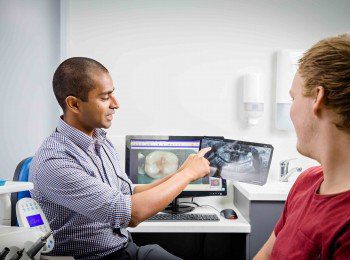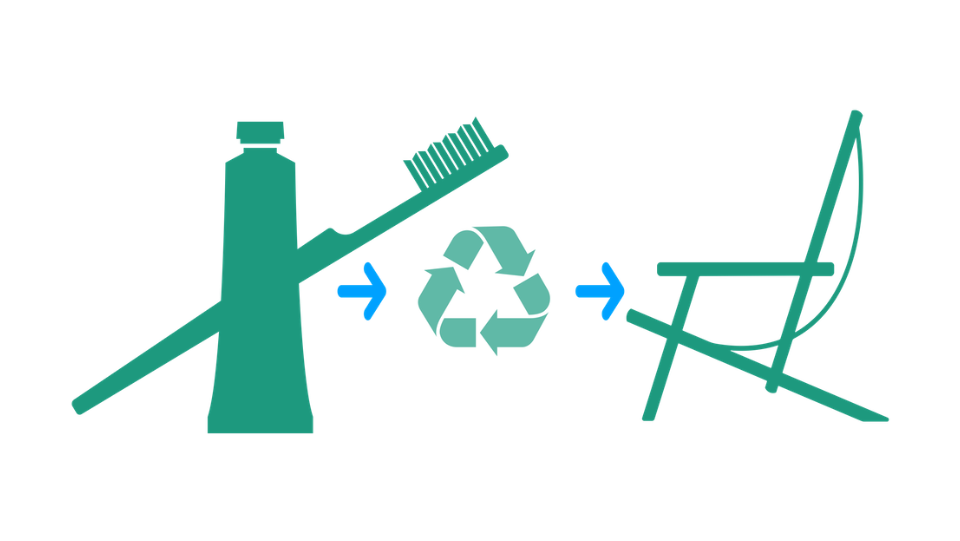Wisdom teeth Adelaide
Wisdom teeth aren’t always predictable or easy to deal with. Here are the top 5 questions and answers we are asked about wisdom teeth removal, wisdom teeth pain and wisdom teeth infection:

At what age do people get wisdom teeth?
Wisdom teeth usually come through between the ages of 18 to 25, though there can be some variation. Some patients may even have them come through in their mid-teens while others have them first emerge in their sixties!
Not everyone is born with all four wisdom teeth. Some of us have no wisdom teeth, some have all four, and some have one, two or three.
What wisdom teeth problems usually bring people to the dentist and what are the treatment options?
The main reasons people see their dentist regarding their wisdom teeth are due to pain when the wisdom teeth are breaking through the gum, or if there is decay in a wisdom tooth that is already through.
When wisdom teeth emerge through the gum, there can be some discomfort, similar to ‘teething’ in children. Sometimes the gum around the emerging wisdom tooth can become inflamed or infected due to food packing or plaque accumulation in the area. This can become quite sore and require an urgent visit to the dentist to relieve the pain. These infections can be controlled, but often the tooth needs to be removed to ensure they don’t return.
Likewise, some wisdom teeth that are fully through can develop decay as wisdom teeth are notoriously hard to clean. If the decay reaches the nerve or centre of the tooth, the patient can develop a dental infection. Whilst such teeth can have root canal treatment like any other teeth, often removing them is a more realistic option.
Do wisdom teeth always need to be removed?
No, they do not always need to be removed. In fact, dentists try to help patients keep their wisdom teeth where possible! If a patient is lucky enough to have plenty of room in their mouths for their wisdom teeth, and they emerge with no trouble at all, and can be easily cleaned and maintained, then there’s no need to remove them. Likewise, if they are present, but impacted in the patient’s jaw and not causing any trouble or pathology, they are best left undisturbed.
We only tend to remove wisdom teeth if they have come through but are decayed or likely to become decayed and cause pain, or if they are partially through with no obvious ability to emerge fully, and are causing the patient discomfort.
It is important to have your wisdom teeth and situation assessed by your dentist to help predict whether they will cause a problem or not, and thus plan what needs to be done with them.
Are wisdom teeth always removed under general anaesthetic?
How a wisdom tooth is removed, depends on whether it is fully emerged or not. If a wisdom tooth is fully erupted in the mouth, it can be removed under local anaesthesia just like any tooth, if a patient is happy to do so.
On the other hand, wisdom teeth that are impacted in the jaw are more difficult to remove, and while they can still be removed under local anaesthesia in the dental chair, patients are often more comfortable having these done under general anaesthesia. This is especially true when multiple impacted wisdom teeth have to be removed.

It is important to chat about which option is best for you when it comes to having your wisdom teeth removed.
It is important to chat about which option is best for you when you speak to Dr Ryan Cornish about having your wisdom teeth removed. When discussing your options we can also discuss the pros and cons of each options and the cost of these options too.
What is the pain like during and after the treatment?
Removing a wisdom tooth is usually painless as it is done under either local or general anaesthesia! However, people may feel discomfort in the healing phase after the removal.
Removal pain can vary from:
- very little discomfort if only a single fully erupted tooth is removed under local anaesthesia,
to
- quite obvious discomfort requiring regular pain relief and some time off from school and work if four wisdom teeth are surgically removed under general anaesthesia.
It is important that the healing of wisdom teeth sockets is closely monitored. In more complex procedures, Dr Ryan Cornish may organise reviews with you to ensure the sockets are healing as they should.

Dr Ryan Cornish – Surgical Dentist
Will I need to see a specialist?
Some wisdom teeth can be removed by your general dentist, especially if they are fully through the gum. However, if they are badly broken down or are either fully or partially impacted in the bone, they best handled by a dentist with surgical training, due to the complexity of the procedure.
Our surgical dentist, Dr Ryan Cornish takes care of most wisdom tooth procedures at Shepherds Hill Dental Centre.
Questions about Wisdom Teeth?
If you would like to discuss your Wisdom Teeth situation, please call us on 08 8278 6858 or request an appointment online.
Latest Articles Answering Your Common Questions
Looking for a dental partner who provides quality and care for you and your family?
Give us a call today on (08) 8278 6858 or complete the online form to book your appointment or discuss how we can help you with your dental care.
FAQs
Wisdom teeth should be removed if they are impacted, causing pain, or posing a risk of infection or damage to adjacent teeth.
Recovery time varies but generally takes about one to two weeks. Following your dentist’s post-operative care instructions will aid in a smooth recovery.
Like any surgical procedure, wisdom teeth removal carries some risks, such as infection or dry socket. However, complications are rare and manageable.



